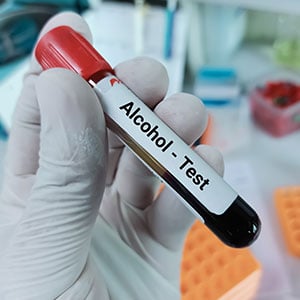
You have choices. When you are pulled over, maybe for a minor traffic violation, and the officer for whatever reason suspects you may be operating the vehicle under the influence of alcohol or drugs (OUI), you have a choice when asked to participate in field sobriety tests or to submit to a chemical test – more specifically, to a breath or blood test.
Refusal, however, in terms of submitting to a breath or blood test, can have an immediate impact on your driving privileges regardless of whether or not you are actually illegally intoxicated to operate a motor vehicle in Maine. Refusing to perform a field sobriety test has no such consequence.
Here’s what you should know before you refuse a breath or blood test during an OUI investigation in Maine.
Consequences Of A Breath Or Blood Test Refusal In Maine
There are two specific consequences that occur in Maine when you refuse to submit to a breath or blood test.
- Your driver’s license will automatically be suspended for at least 18 months and an additional 180 days is added if you had a passenger under the age of 21 in the vehicle; and
- Your refusal will be considered as an aggravating factor in your criminal case for operating a vehicle under the influence, and that means your sentence may end up harsher than what it could have been. See the table below that provides the number of the offense with no aggravating circumstances versus the same number of the offense but with a refusal.
Offense
| Offense | Suspension | Jail Time | Fine |
| 1st | 150 days | 0 | $500 |
| 1st refusal | 275 days | 48 hours | $500 |
| 2nd | 3 years | 7 days | $700 |
| 2nd refusal | 3 years | 12 days | $900 |
| 3rd | 6 years | 30 days | $1,100 |
| 3rd refusal | 6 years | 40 days | $1,400 |
| 4th | 8 years | 6 months | $2,100 |
| 4th refusal | 8 years | 6 months & 20 days | $2,500 |
Knowing what the consequences are, it may be in your best interests to not refuse a breath or blood test in Maine. Remember: these tests can be challenged (and challenged successfully in many cases with the right OUI attorney in Maine) but what can’t be challenged (at least not as easily) is a refusal.
Things To Keep In Mind Before Refusing A Breath Or Blood Test In Maine
There are a few things you will want to keep in mind if you are ever pulled over and suspected of driving under the influence of alcohol or drugs.
First, it is understandable your initial reaction to an officer’s request of you to submit to a breath or blood test may be to refuse it. You may think to do so will prevent evidence against you, but that is inaccurate. You can be arrested and later convicted of an OUI without test results indicating your blood alcohol content (BAC) level. There is other evidence that the officer can obtain that requires no BAC – and the law does not require a BAC result in order to convict you, but having one makes prosecution of an OUI that much easier for the prosecutor.
Also, even if you refuse, the police can still obtain a warrant. A warrant can allow the officer to obtain a blood sample as opposed to a simple breath test. Keep in mind that blood tests are much more accurate than breath test results, and as such, harder to challenge (that said, they can still be challenged).
An OUI charge is serious. Speak with a skilled OUI attorney in Maine to understand what you are up against and how you can build a strong defense, especially when you have refused a breath or blood test.
William Ashe is an experienced trial attorney with a career track record of determined
effective representation and consistent sustained success on behalf of his clients. He has
been named to the National Trial Lawyers Top 100 Criminal Defense Attorneys every year
since 2014 and has a perfect 10.0 rating by the lawyer rating site Avvo. (207) 813-2935